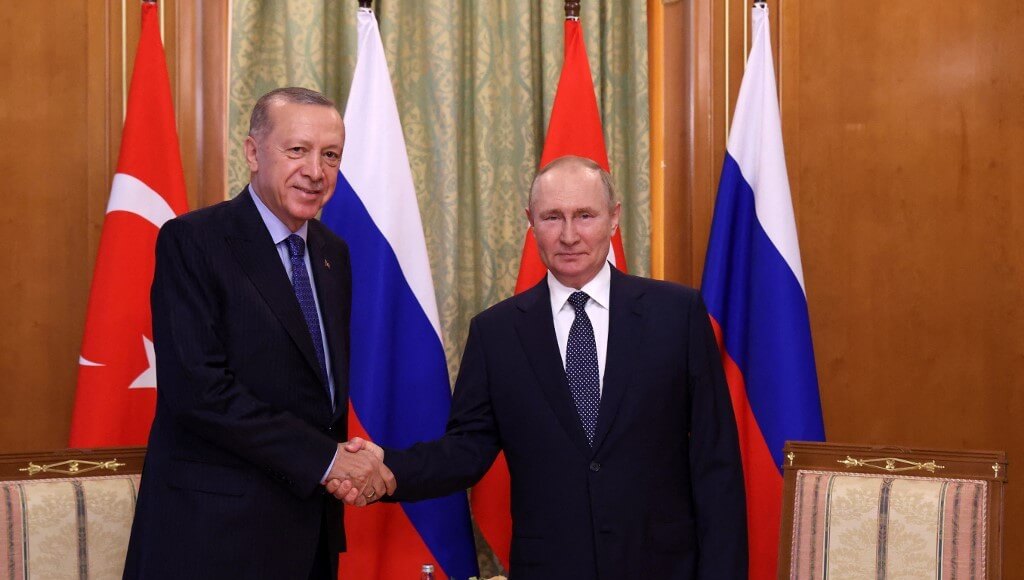Russian President Vladimir Putin and Turkish President Recep Tayyip Erdoğan have agreed that the Russian leader will visit Turkey “soon,” the Moscow-based Interfax news agency reported, citing Kremlin foreign policy advisor Yury Ushakov.
Putin, who has a close relationship with Erdoğan, was among the first world leaders who congratulated Erdoğan when he won the presidential election last month, securing yet another five years in office.
The Russian president told Erdoğan that his victory was “clear evidence of the Turkish people’s support for your efforts to strengthen state sovereignty and pursue an independent, foreign policy.”
“Your victory in these elections is the logical result of your dedicated work as head of the Turkish Republic,” Putin said, according to the Kremlin website.
The possibility of Putin visiting Turkey has been raised several times, most recently for the April inauguration of Turkey’s first nuclear reactor built by Russia’s state nuclear energy company Rosatom.
Like Erdoğan, who had to attend the ceremony via video conference due to health problems at the time, Putin took part in the ceremony virtually.
The two leaders have not always seen eye-to-eye — backing opposing players in conflicts in the Middle East and the ex-Soviet Caucasus region — but they have developed strong ties over the years.
Most importantly, they see each other as reliable partners in challenging the West’s economic, military and political dominance, according to observers.
Turkey has leverage in key areas for Moscow, such as the war in Syria, the Kremlin’s standoff with NATO and the large-scale Ukraine offensive.
NATO member Turkey has delivered drones to Kyiv, but it has refused to join sanctions against Moscow, thus becoming an important alternative transit hub for heavily sanctioned Russian exports.
Moreover, since the beginning of the Russian war on Ukraine, Turkey has been actively offering to act as a mediator for a ceasefire in Ukraine. In particular, Ankara’s involvement has facilitated the resumption of Ukrainian grain exports, which had been initially blocked by Russia.
Putin faces ICC arrest warrant
Since the International Criminal Court (ICC) issued an arrest warrant for Putin in March, accusing him of war crimes in Ukraine, the Russian leader has to be cautious during travel.
Turkey is one of the countries where Putin can travel without any concerns of an arrest as the country is not a signatory to the Rome Statute that established the ICC, so theoretically not obliged to take action based on an ICC arrest warrant.


